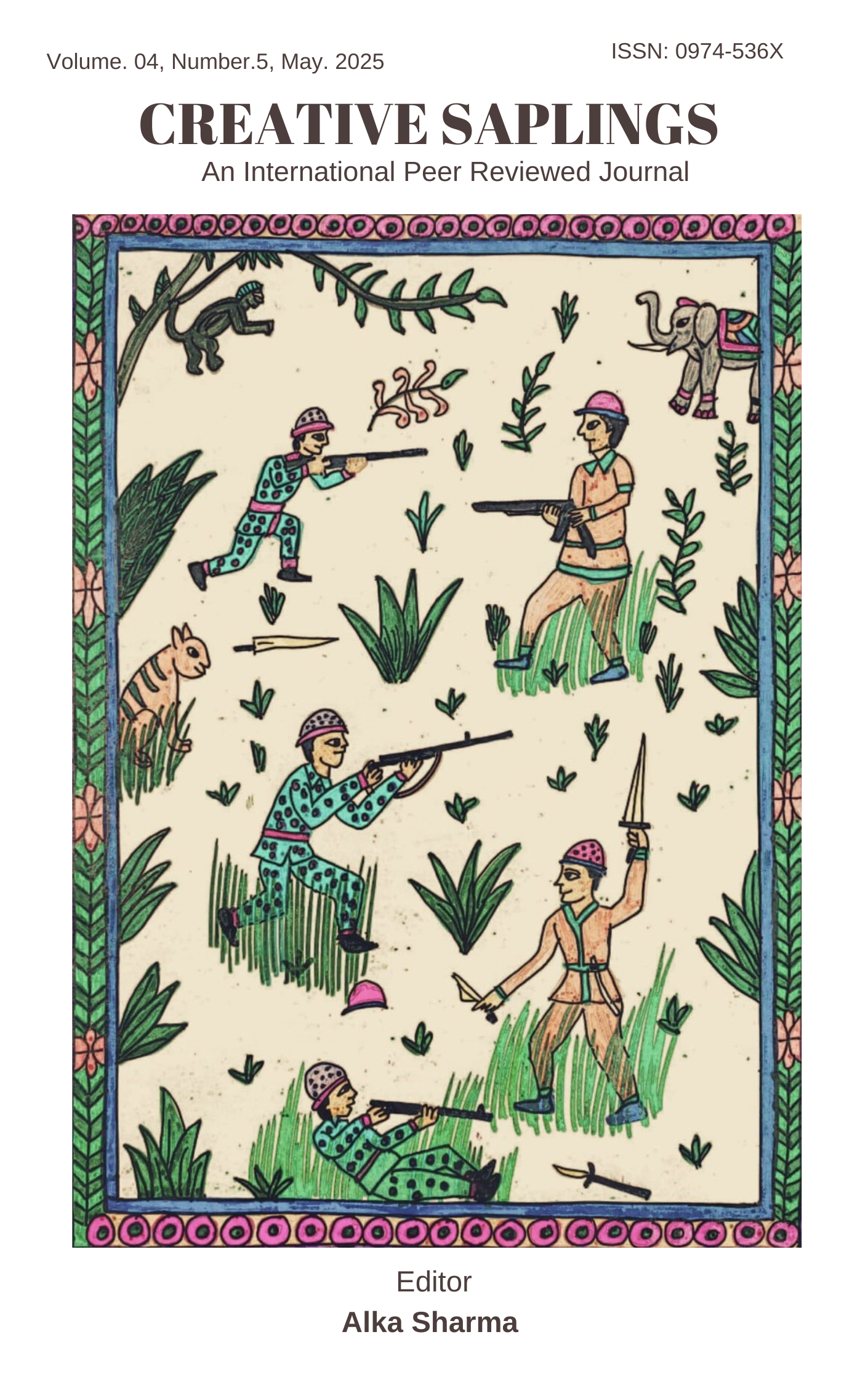The Use of Folkloric Craft in Indigenizing the English Language: A Study of Achebe’s Things Fall Apart
DOI:
https://doi.org/10.56062//gtrs.2025.4.05.962Keywords:
Craft, Domestication, English-Language, Folklore, Indigenized, Things-Fall-Apart.Abstract
After many decades of the emergence of Things Fall Apart, the novel continues to generate a lot of scholarly conversation both literary and linguistic wise. Basically, because of Achebe’s craftsmanship skills which he deploys in creating the story of Things Fall Apart. The major appeal in this story, is how Achebe judiciously uses the English language to enact the folklore of the Igbo-Nigerian culture. Through this skill, Achebe creates a unique type of English that is domesticated and indigenized, with which he ferries his Igbo-Nigerian folk culture into the world stage. And because of the anthropological nature of the novel, the study is anchored on the Structural-Functionalism theory. The theory is anchored on the belief that social structures had to be drawn out of observations; and organizing principles that had to be identified. Consequently, it was discovered that Achebe’s English is indigenized and domesticated. It is this indigenized English which Achebe uses in Things Fall Apart that is investigated in this study. The study was able to reveal that Achebe used the following linguistic devices; glossing, reversal or transliteration, lexical words, compounding, discourse markers or rhetorical devices, interpretations of some Igbo-Nigerian expressions and nominals and prepositional linguistic tools.
Downloads
References
Achebe, Chinua. Things Fall Apart. Oxford: Heinemann, 1958. Print.
……………… . Morning Yet on Creation Day. London: Heinemann, 1975. Print.
………………. . “What has Literature got to do with it?” in Darah, G. G. ed. Radical essays on Nigerian literatures. Lagos: Malthouse Press Ltd, 2008. pp. 1-11. Print.
Anyadike, Chima. & Ayoola, A. Kehinde. (2008). “Preface” in Anyadike, Chima. & Ayoola, A. Kehinde. eds. Blazing the Path: Fifty Years of Things Fall Apart. Ibadan: Heinemann, 2008. pp. x-xvi. Print.
Bandi, Paul. “Code-Switching and Code-Mixing in African Creative Writings: Some Insights for Translation Studies.” Traduction, Terminology, Redaction 9.1, 1996. pp. 139-53. Print.
Emenyonu, N. Ernest. “Half a Century of Teaching African Literature in the Academy” in Emenyonu, N. Ernest. ed. African Literature Today, vol. 29. London: Heinemann, 2011. pp.xiii-xvi. Print.
Jeyifo, Biodun. ‘Umuofia & Nwofia’: “Locality and Universality in Things Fall Apart” in Ayandike, Chima. & Ayoola, A. Kehinde. eds. Blazing the Path: Fifty Years of Things Fall Apart. Ibadan: Heinemann, 2008. pp.1-27. Print.
Lindfors, Bernth. (1968). African Literature Today in Popkin, Michael. ed. Modern Black Writers. New York: The Continuum Publishing Company, 1978. p.8. Print.
Luu, Helen. “The Difference Language “Makes”: Constructing and Reconciling Otherness through Linguistic Form in Things Fall Apart” in Anyadike, Chima. & Ayoola, A. Kehinde. eds. Blazing the Path: Fifty Years of Things Fall Apart. Ibadan: Heinemann, 2008. pp. 241-266. Print.
Nnolim, Charles. Approaches to the African Novel: Essays in Analysis. Lagos: Malthouse Press Ltd, 2010. Print.
Soyinka, Wole. Art, Dialogue and Outrage. New Horn Press, 1988.
Downloads
Published
Issue
Section
License

This work is licensed under a Creative Commons Attribution-NonCommercial 4.0 International License.





